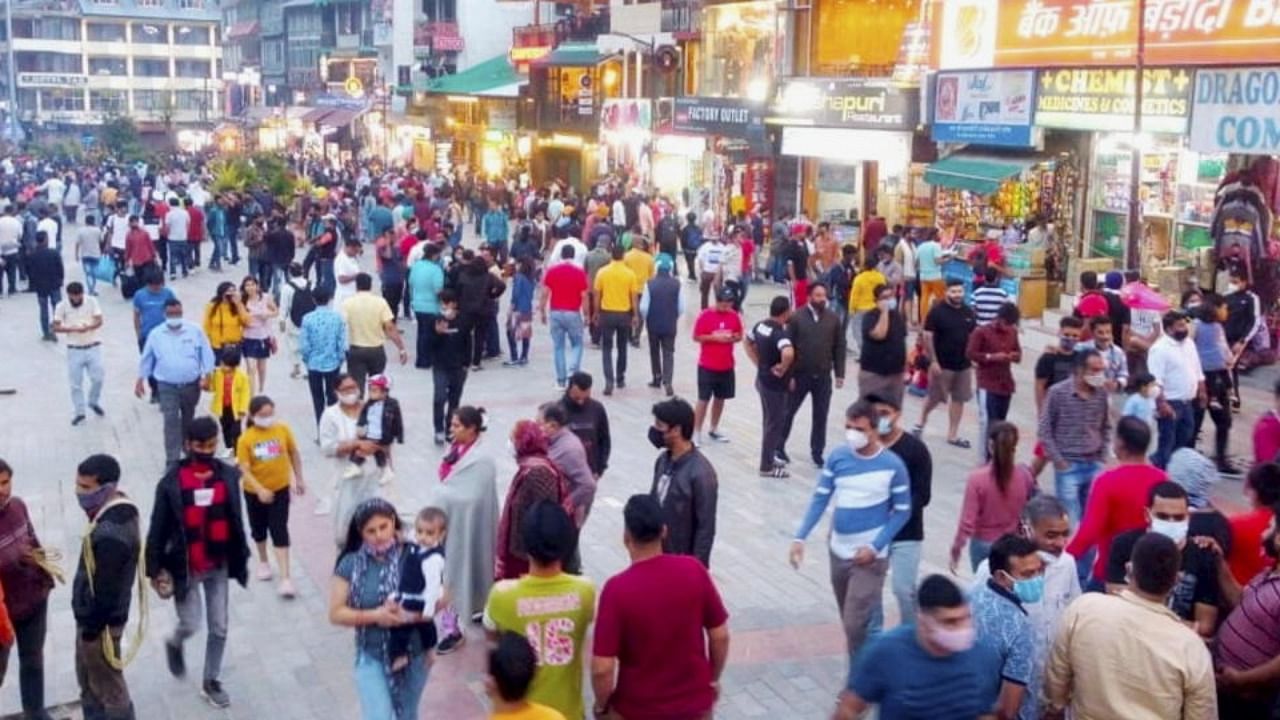
It has often been seen that celebrating victory too early leads to a devastating fall, and a similar scenario is currently prevalent in India. With decline in daily Covid-19 cases in the country, hopes are up that the second wave of the pandemic may end soon. However, recent images of people thronging tourist spots, flouting all Covid norms, have further escalated the fear of a third wave.
Popular hill stations like Manali and Shimla witnessed massive tourist footfalls soon after Covid curbs were eased. The images showed people gathering in huge numbers with no masks or social distancing. This made the government issue a warning that such Covid-inappropriate behaviour could nullify all the gains attained so far. "The community has to follow Covid appropriate behaviour in a sustainable way. The virus is still among us. Whatever you do, do it in a Covid-19 appropriate way,” Lav Agarwal, joint secretary in the Union Health Ministry, said.
While daily cases recently dipped below the 40,000-mark in India over the past few days, the numbers again shot up to 43,733 in the last 24 hours. Recoveries continue to outnumber daily new cases for the 55th consecutive day. The number of people who have recuperated from the disease surged to 2,97,99,534, while fatality rate stands at 1.32 per cent, the data stated.
India is all set to produce Russian Sputnik V vaccine in an exclusive facility in Himachal Pradesh. One of the leading manufacturers of pharmaceutical products in India, Morepen Laboratories collaborated with Russian Direct Investment Fund to produce test batch of the foreign vaccine.
In a rather shocking incident, some government hospitals in Bengaluru asked people to reveal their religion in order to get RT-PCR tests done. Although there is no such provision to reveal religion for Covid tests in the SRF drafted by the ICMR, those hospitals claimed that all the government hospitals are required to ask about their religion.
In another worrisome situation, the vaccination drive witnessed a setback in many centres across the country due to shortage of vaccines. For instance, the vaccination drive came to a halt in Chennai and other parts of Tamil Nadu on Monday and Tuesday. The situation is same in states like UP, Kerala, Gujarat and Maharashtra among some others.
In a bid to curb the spread of the virus, Japan is mulling to ban fans from all events at the Olympics. The organisers have already banned overseas spectators and set a limit on domestic spectators at 50 per cent of capacity.
Amid the long-lasting debate over the origin of Coronavirus, a recent study claimed that there is no evidence to claim that Covid-19 originated from a China lab. In the study published in The Lancet journal, a group of scientists claimed that the virus evolved in nature. The same team of scientists had last year dismissed the lab leak idea as a conspiracy theory in a report also published in The Lancet.
In good news, scientists have discovered a way to develop more effective vaccine against Covid-19 and the rapidly evolving variants. Researchers from Boston University and the Broad Institute of Harvard University in the US came up with a new discovery based on the manner human cells activate the immune system in response to the infection. While the vaccines till now focused on B cells, the researchers said that developing vaccines to activate the other arm of the immune system — the T cells — could dramatically increase immunity against coronavirus, and importantly, its variants.
With rise in Covid-19 cases, the Assam government has reimposed curbs in several districts and also declared seven districts as containment zones. The decision has been taken after an assessment based on the number of cases in the past 10 days.
Are the vaccines safe for people with immune problems? This is one of the many concerns people have regarding the jabs. Since April, France have routinely given a third dose of a two-dose vaccine to people with certain immune conditions. The number of organ transplant recipients who had antibodies increased to 68 per cent four weeks after the third dose from 40 per cent after the second dose, one team of French researchers recently reported.